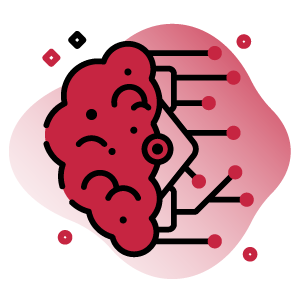
The research group has experience in the development of Artificial Intelligence systems applied to Knowledge Management, which incorporates various technologies such as multi-agent systems, intelligent agents, case-based reasoning systems, plan-based reasoning systems, deliberative reasoning systems, artificial neural networks, genetic algorithms, etc. These techniques have been applied as a whole or individually to different knowledge management scenarios, with particular emphasis in Data Modelling, Knowledge Extraction from Heterogeneous Databases, and Decision Support and Recommendation Systems. Significant studies include Knowledge Management in hospital environments to monitor and support decisions made in geriatric care homes, and to discover information in heterogeneous databases for cancer patients. The group is also experienced in modeling and managing knowledge in financial systems for risk detection and prevention, as well as in decision support in the training and integration of disabled persons into the workforce.
-
Technologies